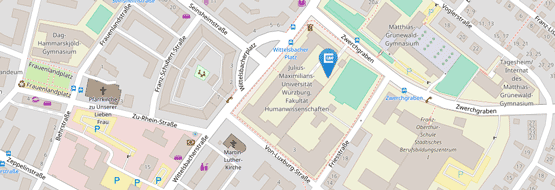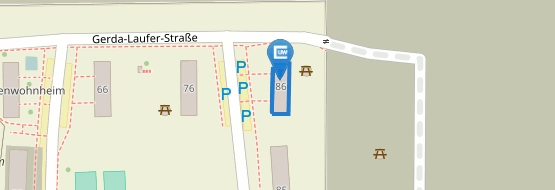Qualification Targets
Academic competences
-
Students will gain an in-depth understanding of key issues and problems in adult and continuing education, the discourse on lifelong learning, and professional practices in adult and continuing education.
-
They will have an overview of selected areas of adult education (including general adult education, political and civil society adult education, vocational and in-company continuing education). They will be familiar with various forms of action in adult and continuing education and can reflect on issues and problems from a professional-theoretical perspective.
-
Students can independently conduct (empirical) studies in adult and continuing education research according to scholarly and methodological criteria and classify the results in terms of their social impact on the field of adult and continuing education and their practical relevance to the profession.
-
Students can critically classify ethics, sociality, and media education questions in the discourse on adult and continuing education.
Ability to take up professional employment
- Students have acquired academic knowledge they can critically assess regarding its relevance to adult and continuing education practice. They can shape the various fields of activity in adult and continuing education and justify their actions based on research findings.
- Students are exceptionally qualified for tasks in the international context of adult and continuing education. They have developed international networks and use these to support local initiatives in adult and continuing education.
- The programme enables students to independently pursue further study of current research findings in adult and continuing education.
- In addition, students learn about institutions and organisations in adult and continuing education and can contribute to organisational change processes.
- Students develop their own professional identities in adult education. The International Learning Project offers special opportunities for reflection.
Empowerment for civic engagement
- Students develop the willingness to contribute with their abilities to co-creative and participatory processes and to participate actively in democratic decision-making.
- Students acquire a broad knowledge of scholarly and social questions and issues. They can argue for their positions on an academic basis, take other positions into account in an appreciative manner, and contribute these to discursive formats in a dialogical manner.
- Students are qualified to engage in dialogue in the context of internationalisation and to communicate international perspectives.
Personal development
- Students will be able to work independently in an international environment.
- Students can work cooperatively with other individuals and groups by communicating different international perspectives.
- Students can draw conclusions based on the current state of research.
- Students can exchange information, problems, and solutions relating to adult and continuing education at an academic level with experts in the field and laypeople.






